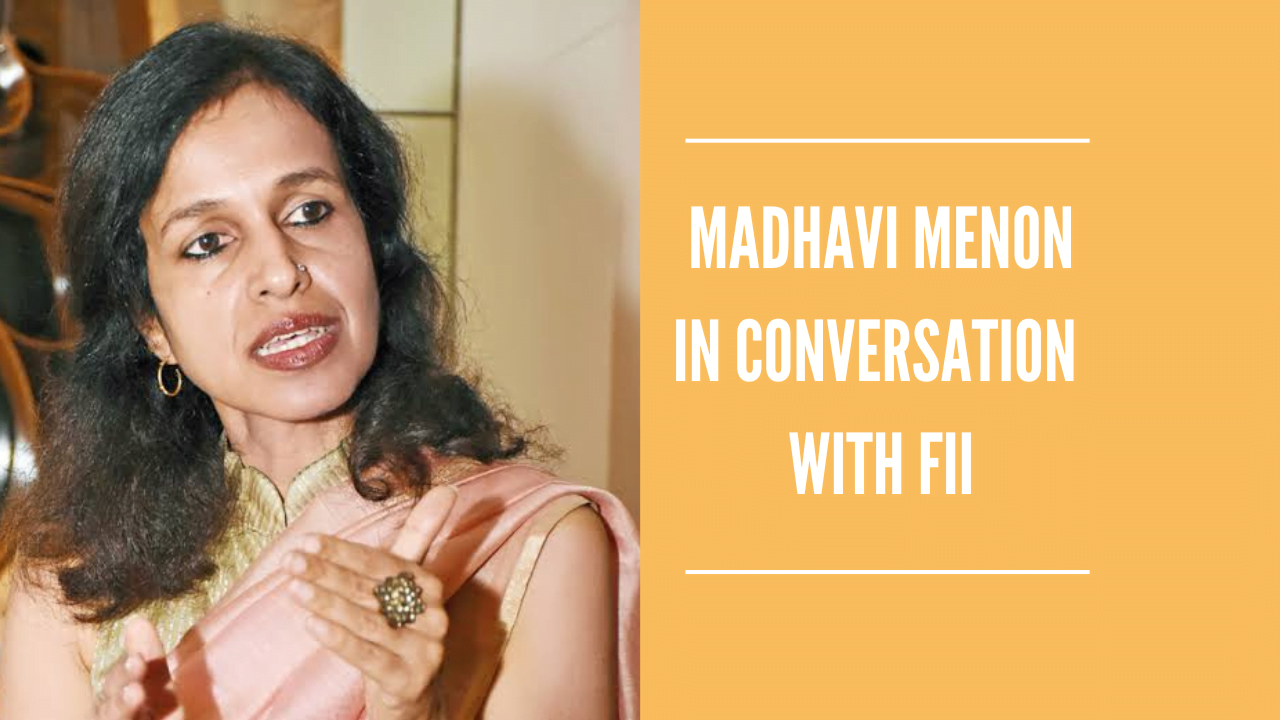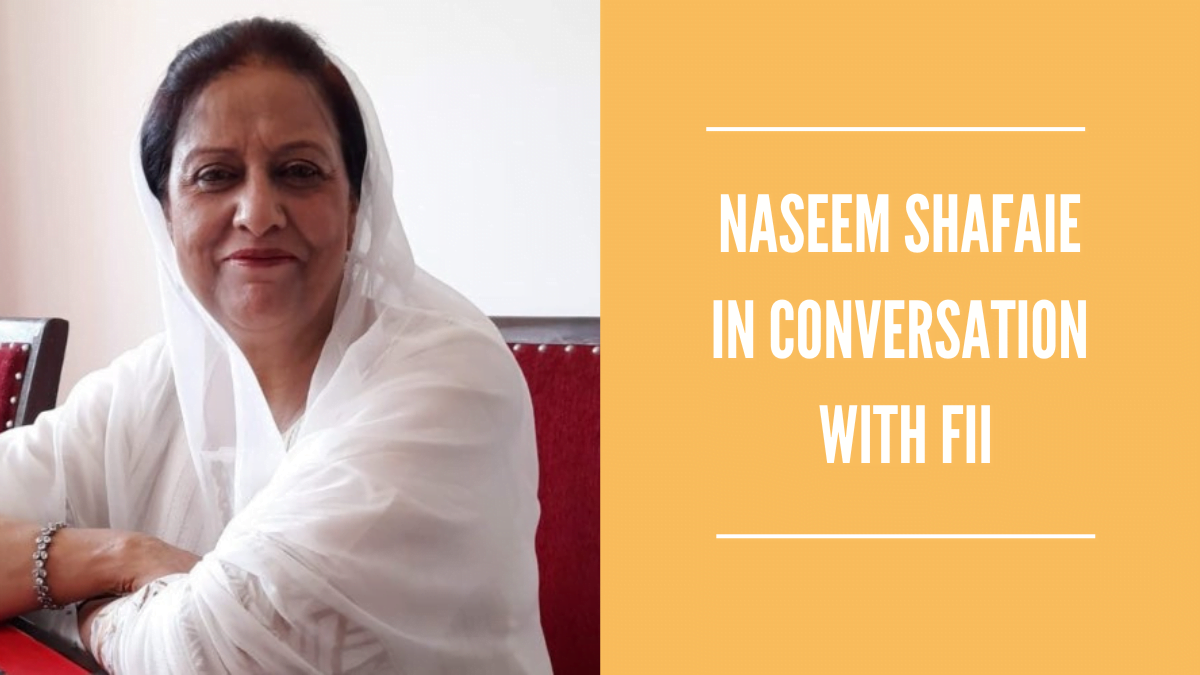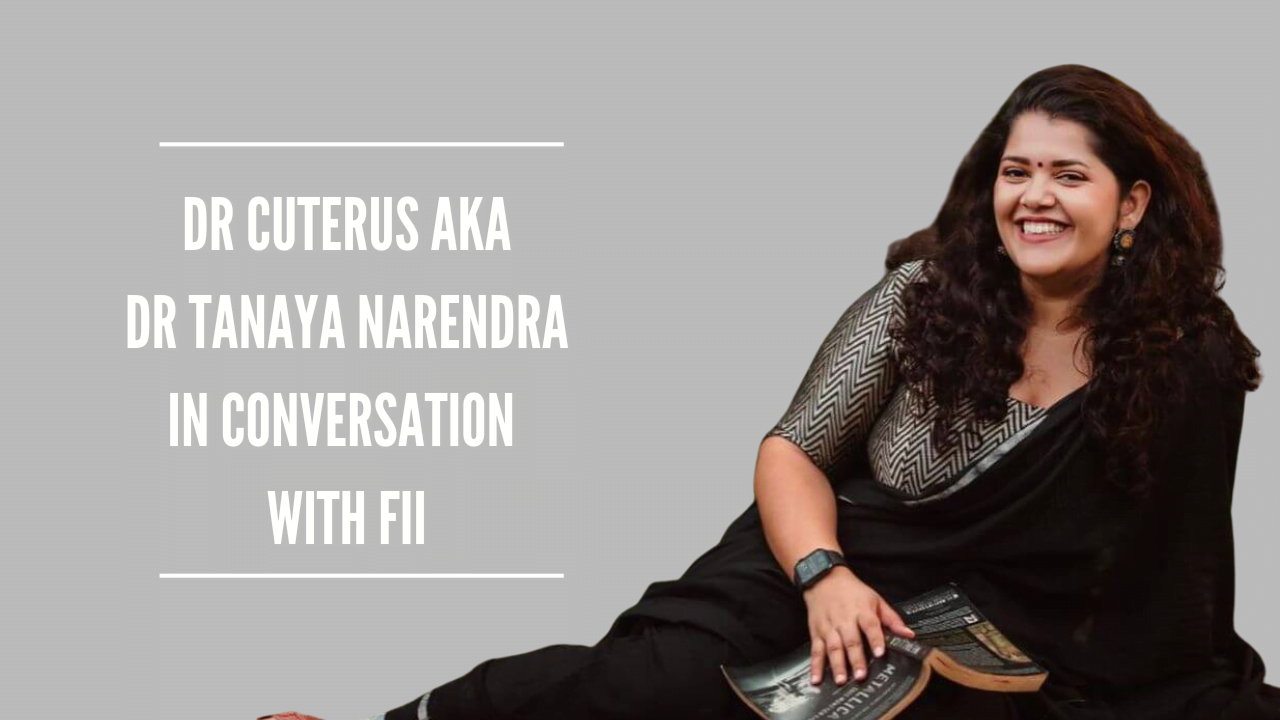In contemporary academia, Madhavi Menon has sparked fresh conversations and ignited new perspectives. Attempting to foreground the complexities of gender, sexuality, and identity, Menon’s work mines multiple archives – literature, history, law, and philosophy – in its analyses. As a distinguished scholar, author, and educator, Menon’s contributions have not only carved pathways through uncharted territories but have also redefined the way we perceive and engage with the world.
In a conversation with FII, Madhavi Menon talks about contemporary queer theory, politics and wokeness.
FII: Your research has made significant contributions to queer theory and postcolonial studies. How do you see these fields evolving in the future, and what kind of challenges do you anticipate?
Madhavi: The major challenge for the left, worldwide, in terms of gender and sexuality, is to figure out how to deal with a concerted right-wing onslaught. One of the responses to this onslaught has historically been the practice of political correctness, which disallows the public expression of hatred and bigotry. But what started as a necessary antidote to rampaging right-wing fundamentalism, seems now to be flirting dangerously with a fundamentalism of its own.
We must remember that the idea of opening things up to different kinds of people, making things more widely available for different experiences, and making the public realm less restrictive and restricted– were what inspired political correctness. But increasingly, that openness is now threatening to become closed. The idea of maximising diversity and minimising bigotry is focused on policing utterances of the left itself: If you get something wrong, then you are cancelled.
We have ended up or are ending up in a place where, while the content of our critique might be different from that of right-wing fundamentalism, the form of absoluteness is the same. It’s my way or the highway – or as George W. Bush so famously said, you’re either with us or you’re against us. Since form and content are so inextricably intertwined, we can end up sounding like the very people we don’t want to sound like.
We have ended up or are ending up in a place where, while the content of our critique might be different from that of right-wing fundamentalism, the form of absoluteness is the same. It’s my way or the highway.
Madhavi Menon
Even though the spectre of a rampaging right wing is a global phenomenon, it is also not the same everywhere. In the US, right-wing ire is focused much more fully and explicitly on sexuality and race rather than gender, while in India, it is tethered much more to gender, religion, and caste, than sexuality. Equally, our response to these phobias too, I think, has been more nuanced in India than in the US, For now. The trouble with left-wing resistance here is that it seems to be tied to a hegemonic American language, at least for Anglophone speakers.
For that constituency, resistance involves using buzzwords like “dead-naming.” But there are also other languages available to us here and we would do well to attend to those to marshal forces against right-wing hatreds here. We have languages that do not use gendered pronouns, for instance, and we have syncretic traditions that are sexually explosive.
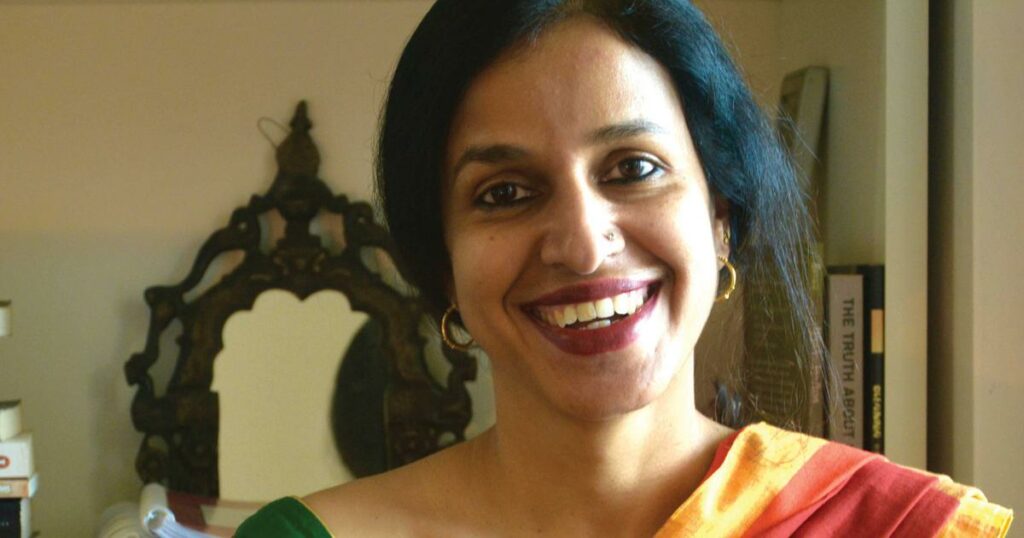
We need to believe in a multiplicity of languages rather than in only one “right” one. Singularity can never be the answer to singularity. If the practice of political correctness has led us to believe there is only one correct way to live in the world, then that diminishes our lives rather than enriching them. Being politically correct was always meant to allow for the chaos of multiplicity, and we need to reclaim that history.
FII: Your conception of the word ‘queer,’ is rather different from the far right, as well as the ‘woke,’ internet discourse. In light of that, where do you place your understanding of queerness?
Madhavi: I was always very interested in gender. But the reason I was interested in gender is not necessarily because I was interested in the truth of women or the truth of men. I was interested in gender as an idea because I was interested in how little sense it made. I was interested in gender at the moments at which it failed to cohere or at the moments at which it failed to make sense. This is why the idea of cross-dressing to me is so interesting because it sends up gender for precisely what it is, which is a performance in which you dress up in a certain way.
That double investment in failure and performativity is very much my approach to queerness as well. Queerness is not a concept that can be stabilised ontologically. It is not an identity that we can claim by saying ‘I am queer.’ This is because the minute we enter the space of ontology, the minute we’re able to say, ‘I am X,’ we are letting go of the kind of flexibility and fluidity that we say we want. So the minute we say, ‘I am something,’ we are staking claim to a ground that is much more contested and fluid than our statement allows it to be.
When we believe that queerness is an identity, or that such and such is queer, then we are not in the realm of queerness, we’re in the realm of identitarian politics.
Madhavi Menon
When we believe that queerness is an identity, or that such and such is queer, then we are not in the realm of queerness, we’re in the realm of identitarian politics. So the short answer would be that for me, the reason why queerness or thinking about queerness or theorising queerness is such a rich endeavour is precisely because it resists all the rewards that identity politics throws our way. It defies all the sops and invitations that are extended as part of a certain kind of community-based politics, which does not describe my interest in queerness at all.
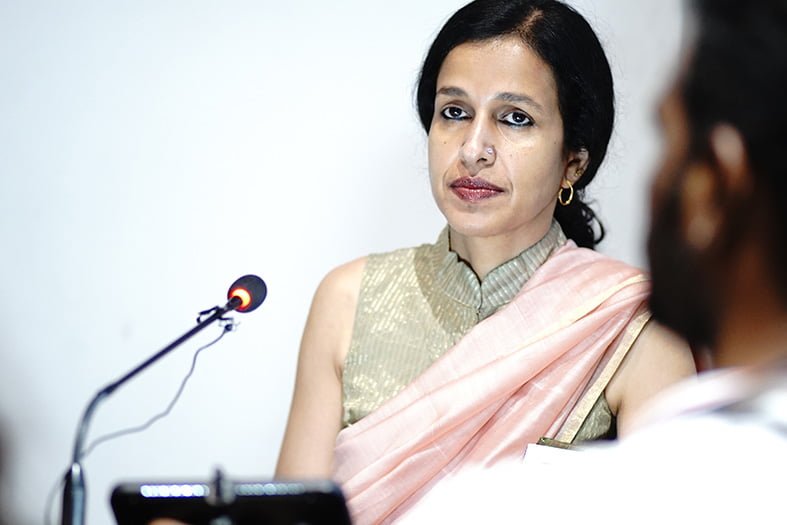
For me, queerness is, instead, a mode of querying the seeming consistency of the world, the seeming intransigence of its structures, and the seeming fixity of its desire.
FII: Wokeness is an attractive notion for many. Belonging to a community is seductive. How does one dispel that and live queerness in the way you theorise it?
Madhavi: Communities are very seductive concepts, very warm and inviting where you feel like you belong. But belonging can be a dangerous idea and a dangerous term. There are at least two problems with this idea of belonging: one, we assume that we are fixed entities who have only one focus for our identity when in reality there are multiple ways in which every one of us inhabits the world. And two, we presume that others too are fixed entities who will reflect you back to yourself. So belonging to a community can be an utterly self-serving desire. Community both reifies and reproduces itself. To me, the problem of the right-wing has always been this reification and reproduction of the self.
I am much more of a Marxist in this regard. I’m much more invested in –what we would now in old-fashioned terms call – solidarity. I don’t want only to be with those people who look like me or think like me, or live where I do, or eat what I eat, and so on. Unless we’re able to stand with others in solidarity and understand that both so-called selves and others are continually shifting, we’re not being political in any radical sense of the word.
Unless we’re able to stand with others in solidarity and understand that both so-called selves and others are continually shifting, we’re not being political in any radical sense of the word.
Madhavi Menon
Being sceptical of an identity-based community, and building affinity-based communities can be much more surprising and potentially more rewarding, The beauty of affinity, of course, is that it can and should change, and refine over time. For me, affinity is far more important than identity.
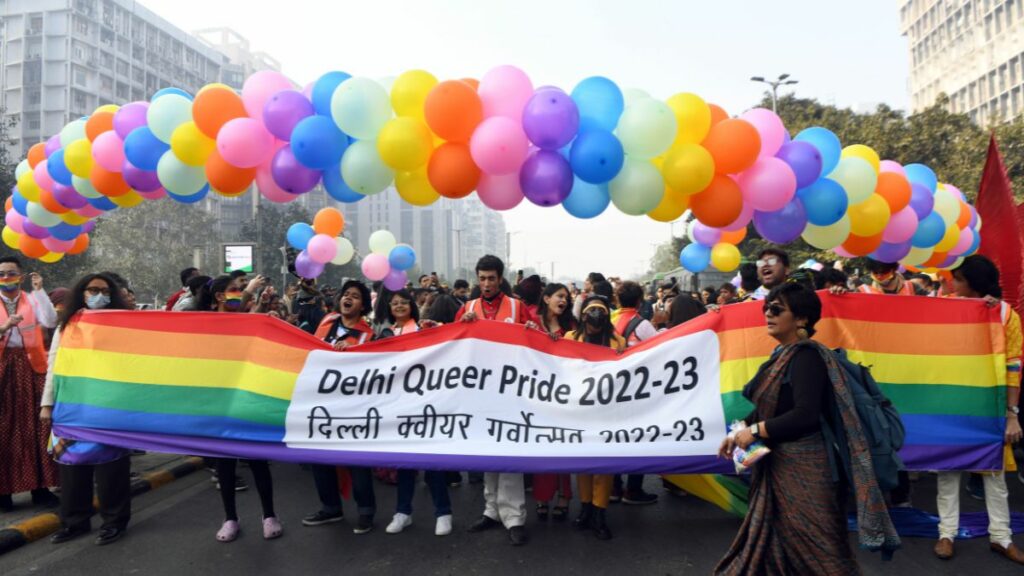
Because that’s the problem, isn’t it?
FII: But how do you conceptualise a world that doesn’t work on an identitarian structure?
Madhavi: Since the world is, to a large extent, and wants to be, to an even larger extent, structured along identitarian lines, we can be forgiven for thinking that this is the only way to be. But we need to remember two things about identity before arriving at that conclusion.
First: identity didn’t always work in the ways that it does today. People might always have had “identity” but they weren’t always understood as being rigidly exclusive. And second: even today, identity doesn’t quite work. This is why, as I said before, I’m interested in the moments when things break down. The reason why we have strict social laws about desire, for instance, about the caste and class and religion into which we can marry, legal laws about who can marry whom or what or within what relation, is precisely because desire is one of those realms in which structures don’t work. Even within seemingly ‘straightforward,’ heterosexual relationships, structures don’t work in the way that we pretend that they do.
So our question really should be: why do we need to pretend that structures work? What would happen if we were able to give up our hold on structures, or be a little more adventurous or experimental in moving between structures?
Let me be clear, though: we cannot do without structures. I think the only thing we can do differently is be aware that structures are never fool-proof, never fail-safe, and never unending. Structures always morph.

So when people say they wish they could live in a world without gender, then what we need to realise is that there is no such world. The only world we can hope to live in is a world in which gender is seen as being much more fun, as being much more about what role you decide to play on a single day.
The catch here, of course, is that other people too would have to agree to play. Because if I wake up in the morning and say, ‘Okay, hooray! I’m going to play,’ it won’t make any difference if there are people who are going to insist that I can’t play. So there has to be a more widespread scepticism about structure if we want the world to look any different.
FII: You’ve stated that “Theory comes from the everyday,” many times. In light of that, what does your academic process look like? How do you scratch the itch for inspiration?
Madhavi: My inspiration is always another “I” word, which is irritation. I tend to work on things that irritate me. Anything I work on is born of something that I have found extremely foolish, extremely problematic, or utterly phobic. My work on Sufism, for instance, comes from living in a world of Islamophobia. So my inspiration is inevitably irritation!
FII: What are you watching or reading right now?
Madhavi: I recently watched Barbie and I did not like it much. The script was often very well-written, and it was at times camp and fun. But there seemed to be something very basic about its women-versus-men version of feminism and patriarchy. And it also didn’t know how to conclude. One of the difficulties of living in a world in which right-wing fundamentalism is on the rise is how to maintain a light touch even when talking about heavy issues.
How, for instance, do we bring a film about patriarchy to a conclusion without sounding earnest? I think the reason the film lost out for me is because it became disastrously earnest. And maybe there could have been a better way around it, but that project of coming up with alternatives is very difficult in the current political environment. When we’re trying to talk back to something, we end up sounding either earnest or fundamentalist.

In this regard, Rocky aur Rani ki Prem Kahaani was much more fun and also much more serious, without getting earnest. It too dealt with very real and pressing issues, but it wasn’t self-righteous; it asked us to think about why we don’t like to think, and that’s a much more powerful way of questioning repression. Plus, anything with naach-gaana in it is always more fun!
